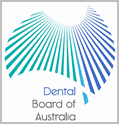Smoking has many negative effects on your oral health; fortunately, after cutting down or stopping entirely, your mouth can soon start to improve, and you’ll cut the risks of developing these problems.

Problems Caused By Smoking
The most obvious problems are aesthetic ones, such as discoloration of teeth. However, there are far more issues that aren’t as obvious, but are far more serious. Smoking can contribute to bone shrinkage, teeth loss, and a decrease in blood flow and saliva, as well as poor healing of the mouth after surgery or injury. Even worse, it’s strongly linked with a greater risk for oral cancer – 9 times more than non-smokers.
What Signs To Look Out For
The main problems that smokers will want to beware of are gum disease and oral cancer.
Gum disease is often masked in smokers, as blood flow is restricted to gums so they don’t show the tell-tale signs of bleeding – and smokers are twice as likely to get it as non-smokers. This increases the chances of it developing into tooth loss, so smokers should keep an eye out for symptoms such as:
- Sore, bleeding gums or discharge of pus
- Loose gums or teeth
- Bad breath or a persistent bad taste in the mouth
Oral cancer can affect the tongue, cheek, palate and lips as well as the surfaces of the mouth. 75% of sufferers are smokers, and have a lower survival rate than non-smokers. It’s not all bad news, though – the risk reduces to that of non-smokers within 10 years of quitting.
Symptoms to look out for include:
- An ulcer that persists after 7-10 days, particularly a non-painful one
- White or red patches in the mouth
- Swelling in the mouth
- Ill-fitting dentures
How To Prevent Problems
Obviously, the best thing you can do if you smoke is to stop; the second best is to cut down the amount of cigarettes or chewing tobacco that you use. There are many resources available to help you to stop, from support groups to nicotine patches.
Standard oral hygiene is also vital, so brushing with fluoride toothpaste, flossing and using mouthwash shouldn’t be missed out.
Smokers should also take care to avoid having a dry mouth – the easiest way to achieve this is by regularly drinking water. Alcohol intake should be limited, as it further increases the risk of developing problems such as oral cancer.
Smoking increases the risk of developing many different oral health issues, and some can be extremely serious. Smokers should take extra care over their dental hygiene, and consider cutting down or stopping if they want to give themselves the best chance at optimum oral health.
Herald Avenue Dental Centre in Willetton
If you smoke and are concerned about your oral health, contact us immediately. To make an appointment, please call 9259 5774 or book online.




